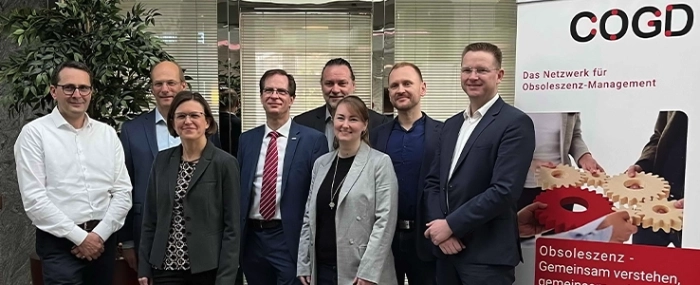
COGD calls for stronger risk analysis and proactive obsolescence management
The newly re-elected board of the Component Obsolescence Group Deutschland (COGD) is urging German industrial companies to enhance risk analysis and adopt proactive obsolescence management strategies amid growing supply chain challenges.
At the first COGD Quarterly Meeting of 2025, the board, re-elected for a two-year term, identified supply chain security as a critical issue, particularly for companies that solely produce in Germany or Europe. The non-profit organisation warns that geopolitical developments and other global factors may further exacerbate supply shortages.
Materials, substances, software, electronic components, and other replacement parts that have been discontinued or are no longer available on the free market for other reasons frequently cause significant production and maintenance constraints for German industrial companies, particularly in the durable goods sector.
COGD Chairman Axel Wagner emphasised that since its founding two decades ago, the organization has developed various strategies to mitigate obsolescence, working alongside its 175 member companies. Key initiatives include industry collaborations, workshops, and international standardisation efforts, such as advancing the smartPCN standard within IEC 62402 and partnering on the SCIP database initiative with ReachLaw. However, Wagner noted that awareness of supply chain risks remains insufficient among many companies outside COGD’s network.
Wagner stressed that tackling obsolescence in isolation is ineffective. Instead, he advocates for continuous communication along the entire supply chain to ensure a resilient procurement strategy.
“The resilience of a supply chain is based on a dynamic interplay of risk analysis, proactive planning and diverse partnerships. By becoming more active in their risk analysis and intensifying comprehensive collaboration within the supply chain, companies can react better to unforeseen events and increase their resilience to future crises. In a constantly changing world, this is not a luxury, but essential, as is the introduction of proactive or strategic obsolescence management,” says Axel Wagner.


